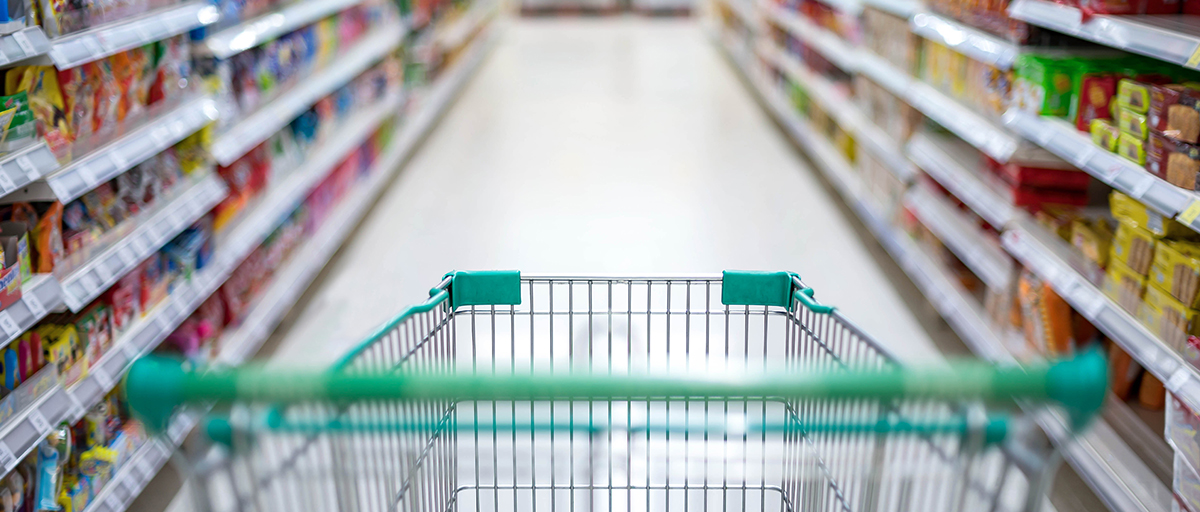
COVID-19 Social Distancing Guide: How To Buy and Sanitize Your Groceries
2019 Novel Coronavirus (COVID-19) cases have climbed up over 600,000 in the United States. It is more important than ever to stick to strict social distancing guidelines. These guidelines are not just to protect yourself, but also to protect those members of the population that are at high risk.
Obviously the best way to socially distance yourself from others is to stay home, but there are obviously essential things we need to still leave the house to buy. Most importantly, food.
You can order out to have food delivered to you, and you should do that to support your local restaurants, but you obviously can’t order out every night.
That’s why we put together this handy guide together. Follow these steps when buying groceries in order to minimize your risk of contact with others.
Buy in Bulk
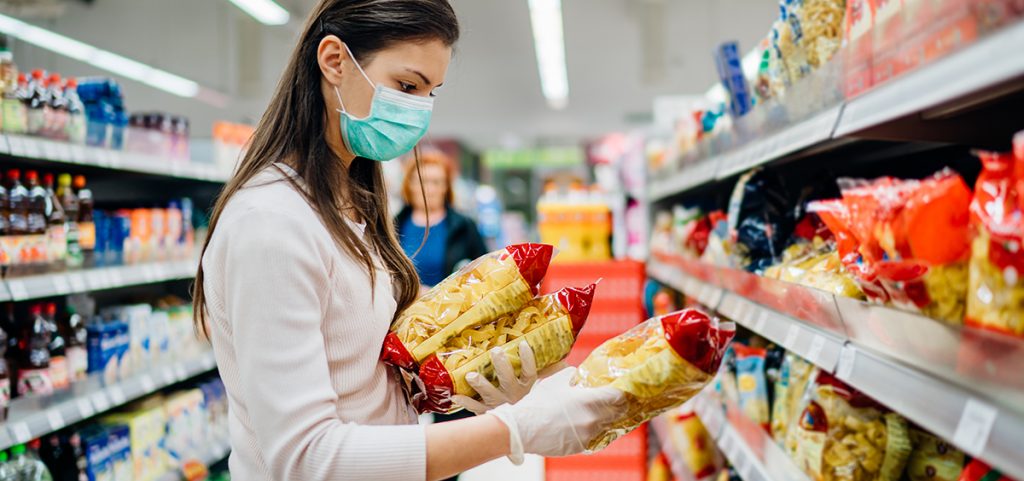
As we already said, the best social distancing practice is simply to stay at home. So if you have to go out and buy food, make it count. Stock up on what you will need for at least a few weeks. Try to focus on dry and canned goods that last a long time. Freeze things like meat and produce if you can.
Just for clarification, we aren’t suggesting you buy out the whole store of things like toilet paper. Remember, everyone in your community needs food and supplies as well. Buying in bulk does not have to mean hoarding food and preventing your neighbors from being able to buy what they need. You’re stocking up for a few weeks at a time, not a few months. Be considerate while also minimizing your need to take regular trips to the store.
Wear a Mask
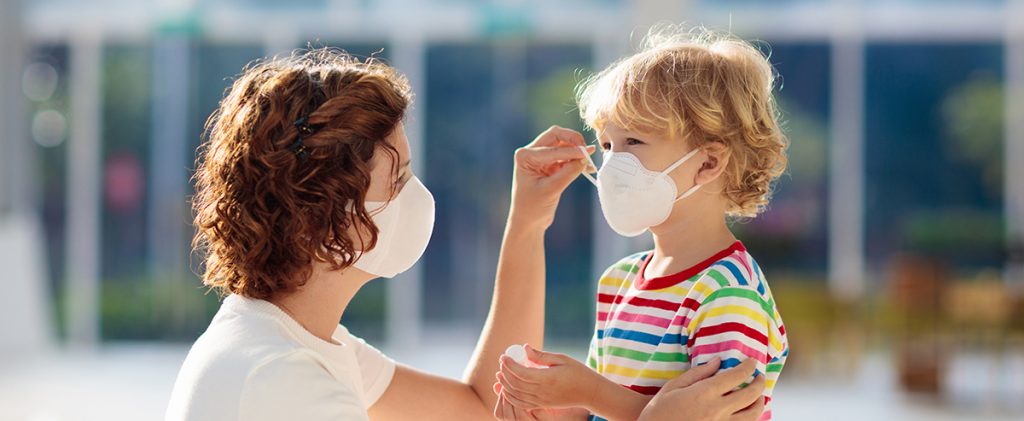
The CDC now recommends that you wear a mask of some kind whenever you venture into a public space. Again, this is not simply to protect you, this is a measure to protect others.
Many people are asymptomatic carriers of COVID-19, meaning they have the disease and show no symptoms at all. These people are a risk to spread the disease to many people unknowingly. So even if you’re young and healthy, even if you don’t feel sick, even if you don’t think you have anything to worry about, you have to wear a mask. Like with vaccines, it’s not all about you, it’s about protecting those among us who are most vulnerable.
Keep 6-10 Feet Between You and Everyone Else Whenever Possible
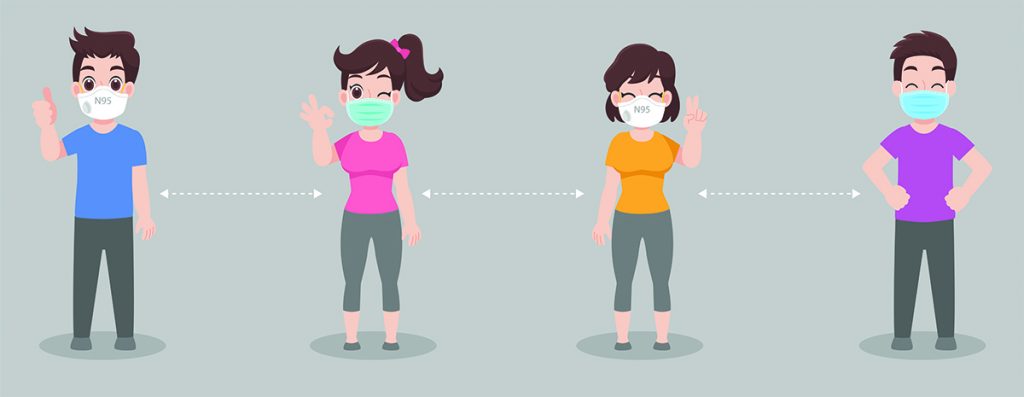
Many supermarkets and grocery stores are already instituting policies that limit the number of people allowed in the store at a given time. This should make it easier for you maintain a safe distance, but it’s still not going to mean you have the store to yourself. Social Distancing is something you have to be mindful of at all times.
Invariably you and another shopper will be trying to grab something at the same time. There’s no need to rush. Be patient. Let the other person get what they need and move on and then you’ll have your chance. We’re all in this thing together, so let’s all be patient and kind to each other while keeping our distance.
Don’t Touch Your Face
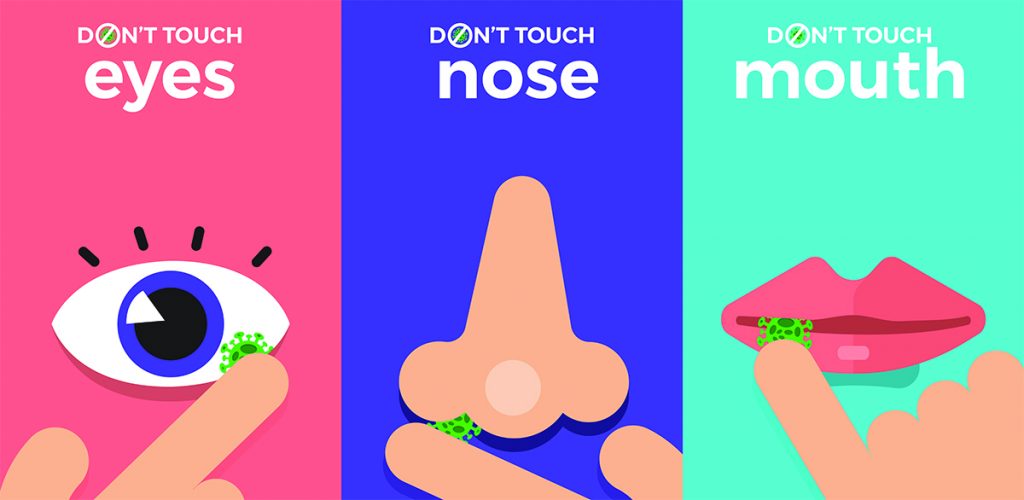
For the most part, viruses don’t infect you simply by getting on your hands. Your skin is pretty good at protecting you from the outside world, and that includes microorganisms.
The trouble is that in places like your eyes, your nose, your mouth, and your ears are vulnerable in ways your skin is not. You may not realize it, but you probably touch your face a lot. You have an itch in the corner of your eye you scratch at, you might pick some food out of your teeth. Maybe you’ve been known to pick your nose from time to time. Hey look, no judgement, we’ve all done it. Whenever you do this, you give the microorganisms that are on your hands, totally blocked by your skin from getting into your body, access to free entry. It is an incredibly difficult habit to break.
This is why washing your hands is so important, especially before eating or before touching your face. You can walk around a grocery store and touch things and your chances of getting infected are pretty slim, even if you managed to come into contact with a malicious virus or bacteria. The second you wash your hands, you wash away the microbes, giving them no chance to infect you. But if you put your finger in your mouth, suddenly you’re not so safe.
Wearing gloves can help, but only if you dispose of them after using them, or if they act as a reminder not to touch your face. The gloves, just like your skin, prevent the microorganisms from getting into your body… but if you scratch your eyes with a gloved hand it’s not doing you any good. The key with gloves is to dispose of them after you’re done in a place to prevent cross contamination. But really, you’re probably better off just washing your hands.
Set Out An Area for Cleaning & Sanitizing
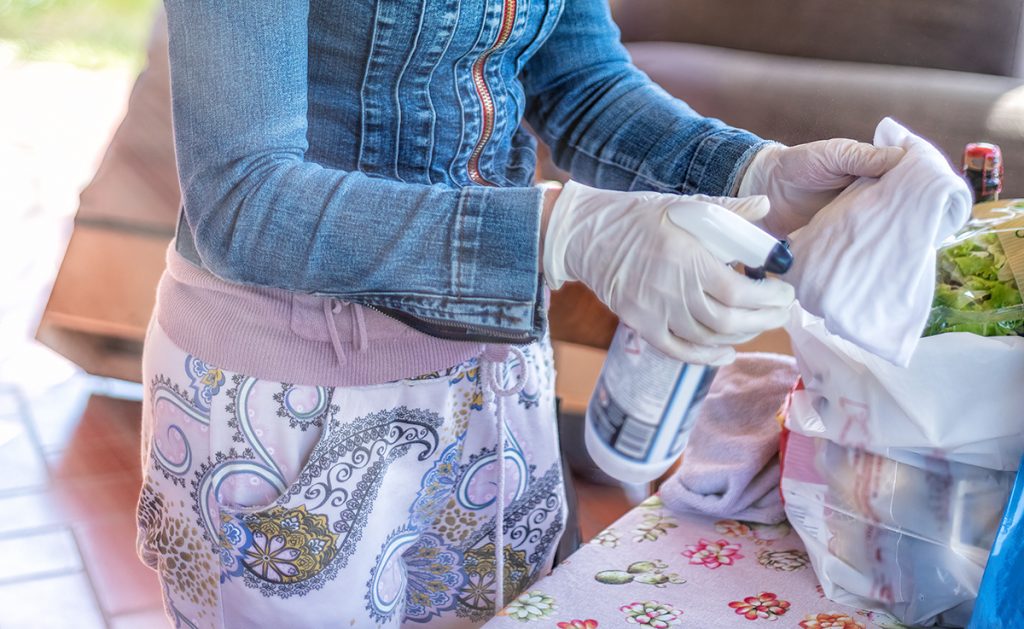
First, it’s worth noting you probably wont catch COVID-19 this way. You are far more likely to contract the virus from another person. However, there is no harm in being safe.
Ideally your cleaning area is right by your door, before you bring the groceries into your home or apartment. A porch, deck, or other entryway is an ideal place. Put down your groceries here and designate that as the “unsanitized” area.
As you work, move items out of the unsanitized area into your “clean zone” or into your apartment to be put away. As you do this, be sure to avoid cross contamination as much as possible. If you just touched an unsanitized item, don’t immediately pick up something in the sanitized zone.
Remove Packaged Items from Their Outer Packaging
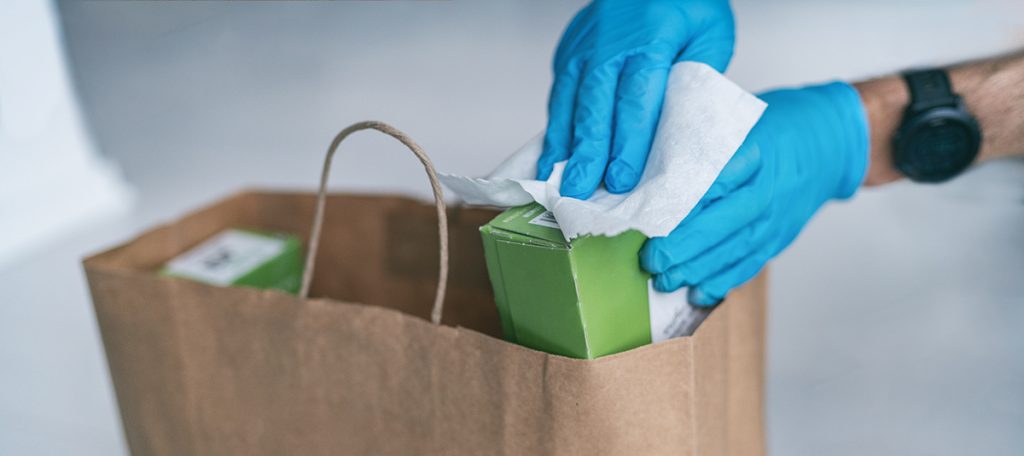
When it comes to prepackaged foods, the outer packaging is the most likely thing to have come in contact with the virus. Your best bet is to remove the food from the outer packaging whenever possible.
If, for example, you have a box of crackers that have several sleeves inside the box, remove the sleeves, wipe them down with a sanitizing wipe or a clean cloth with cleaner, and discard the box without brining it into your home. Be careful not to use soap or other cleaner on anything that might have direct contact with the food. You don’t want to be eating soap or some other cleaning chemical, so if you can’t safely clean the package without getting chemicals on the food, that’s okay.
Clean Produce with Cold Water
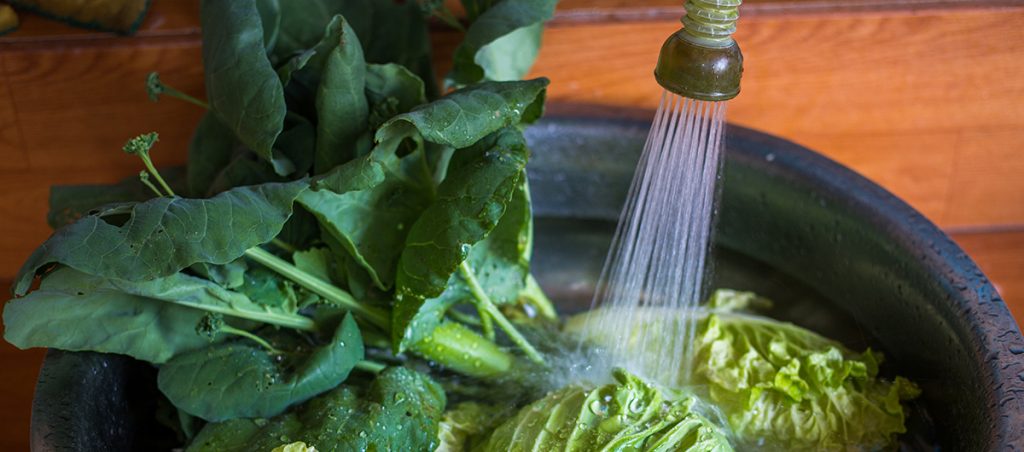
As we said above, you don’t want to use soap or any cleaning chemicals directly on your food. So when it comes to things like produce your best bet is to simply wash it with cool water and use a produce brush to scrub it clean.
The virus is not likely to live long on a porous surface like a plant. So even if someone with the virus touched your produce a few hours ago, you’re not likely to catch the virus.
Seriously, Wash Your Hands
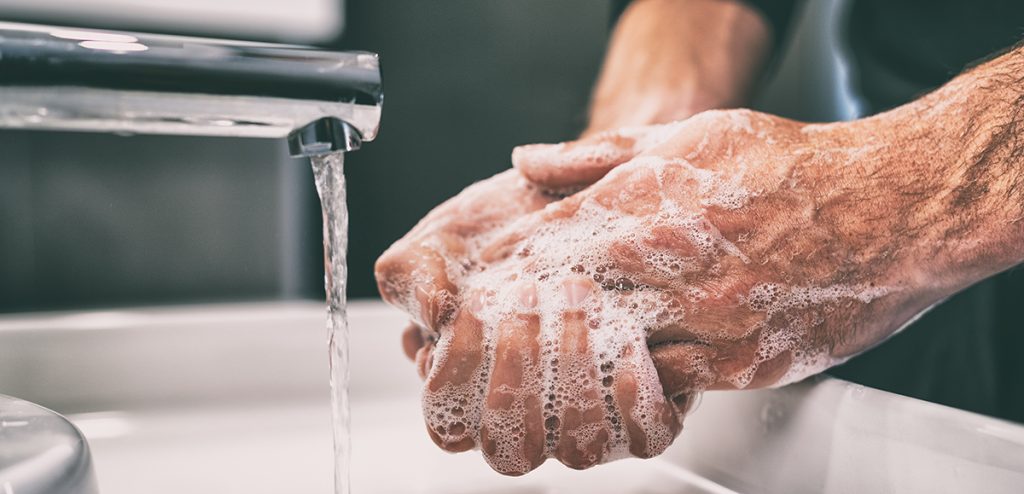
We know we’ve said this a hundred times already in this, but washing your hands is really the best way to prevent yourself from getting sick. Wash your hands as soon as you get home. Use hand sanitizer in your car as soon as you leave the store. Wash your hands before you eat. Wash your hands before you touch something that you know is clean. Social distancing can only take you so far. Washing your hands will do the most to protect you.
You might get dry skin, but dry skin is a whole lot better than the alternative.


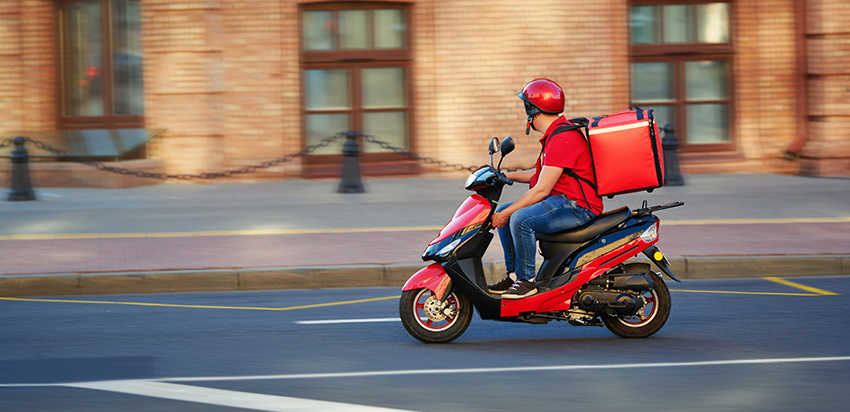
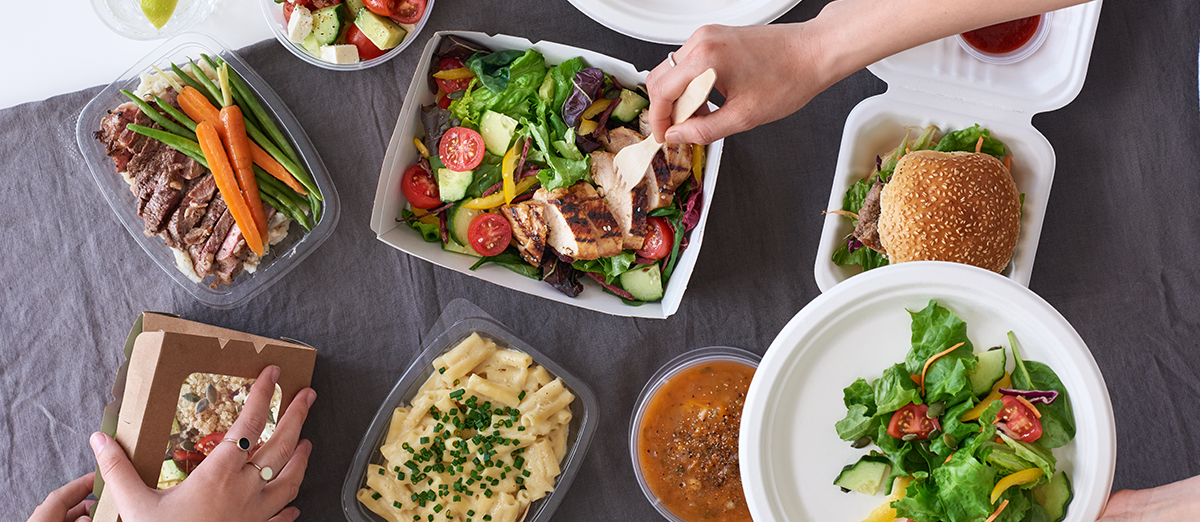

Write a Comment